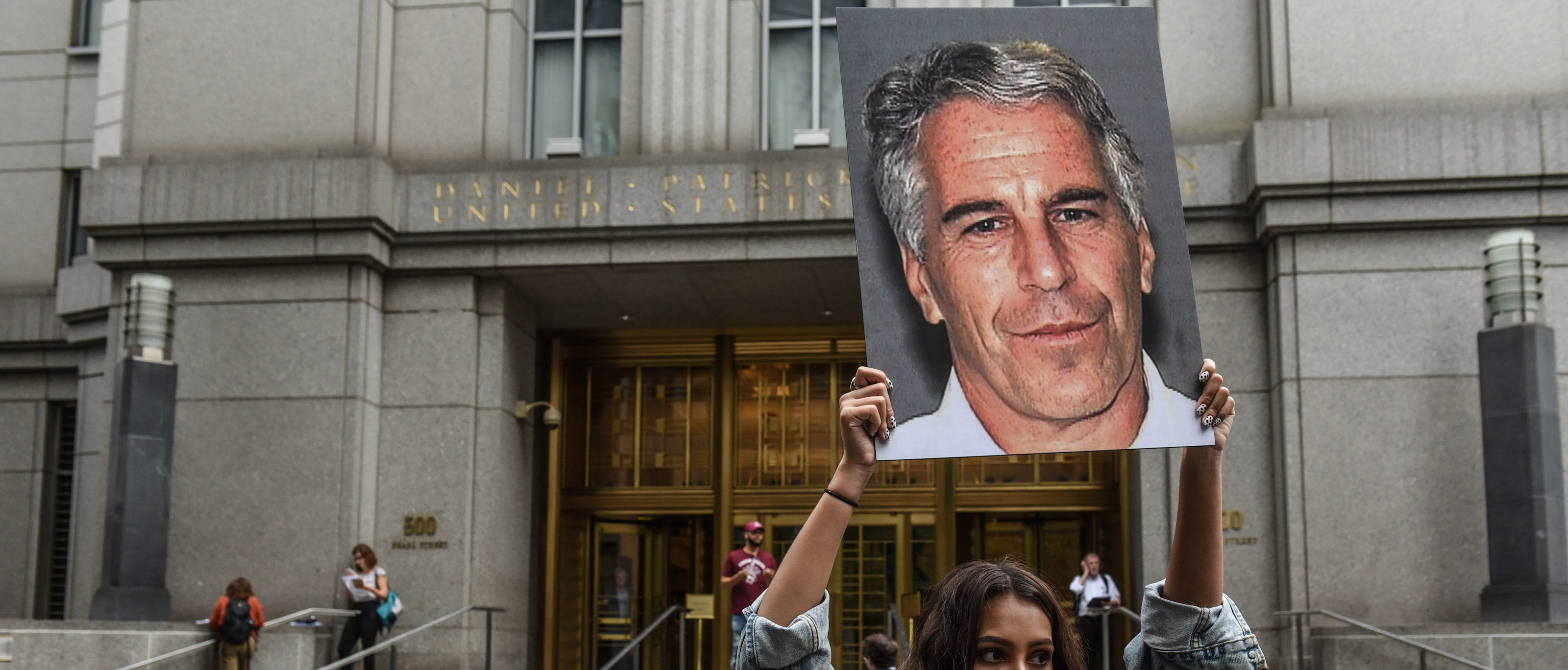Jeffrey Epstein net worth has long been a subject of intrigue and speculation. The late financier and convicted sex offender amassed a fortune that fueled both his lavish lifestyle and his controversial activities. Epstein's wealth not only defined his public persona but also became a focal point in understanding his influence and connections. This article delves into the origins, growth, and implications of Jeffrey Epstein's net worth, shedding light on how his financial empire was built and maintained.
Understanding Epstein's financial standing requires a closer look at his career trajectory and business dealings. Born into a modest family in Brooklyn, Epstein rose to prominence as a Wall Street financier, leveraging his intelligence and connections to build a vast network of wealthy and powerful individuals. His financial success enabled him to fund his extravagant lifestyle, purchase luxury properties, and even engage in philanthropy. However, his wealth also became a tool for manipulation and control, raising questions about the ethical and legal implications of his actions.
In this article, we will explore the various facets of Jeffrey Epstein's financial empire, from his early career to his controversial downfall. By examining his investments, assets, and the sources of his wealth, we aim to provide a comprehensive overview of his net worth. This analysis is not only crucial for understanding Epstein's life but also for addressing broader issues related to wealth, power, and accountability. Let us embark on this journey to uncover the truth behind Jeffrey Epstein's financial legacy.
Read also:Securely Connect Remoteiot Vpc Aws Raspberry Pi A Comprehensive Guide
Table of Contents
- Biography of Jeffrey Epstein
- Early Career and Rise to Prominence
- Sources of Jeffrey Epstein's Wealth
- Real Estate Investments and Properties
- The Structure of Epstein's Financial Empire
- Controversies Surrounding Epstein's Wealth
- Legal Issues and Financial Implications
- Epstein's Philanthropy and Its Impact
- The Legacy of Jeffrey Epstein's Net Worth
- Conclusion: Lessons from Epstein's Financial Story
Biography of Jeffrey Epstein
Jeffrey Epstein was born on January 20, 1953, in Brooklyn, New York, to a family of modest means. His father worked as a carpenter, while his mother was a homemaker. Despite his humble beginnings, Epstein displayed exceptional intelligence from a young age, excelling in academics and eventually earning a degree in physics from Columbia University. However, he left the program before completing his studies, choosing instead to pursue a career on Wall Street.
Epstein's career in finance began in the 1970s when he joined the prestigious investment bank Bear Stearns. His role as an options trader allowed him to build a network of influential contacts, which would later prove instrumental in his rise to prominence. Epstein eventually left Bear Stearns to establish his own financial consultancy firm, J. Epstein & Co., where he catered to ultra-high-net-worth clients, including CEOs, celebrities, and royalty.
Below is a table summarizing Jeffrey Epstein's key personal and professional details:
| Full Name | Jeffrey Edward Epstein |
|---|---|
| Date of Birth | January 20, 1953 |
| Date of Death | August 10, 2019 |
| Place of Birth | Brooklyn, New York, USA |
| Education | Columbia University (dropped out) |
| Profession | Financier, Investor, Consultant |
Early Career and Rise to Prominence
Jeffrey Epstein's early career was marked by ambition and a relentless drive to succeed. After leaving Columbia University, Epstein secured a teaching position at the elite Dalton School in Manhattan. This role not only allowed him to interact with affluent families but also provided him with valuable connections that would later shape his career. Epstein's intelligence and charm quickly earned him a reputation as a rising star in social circles.
In the mid-1970s, Epstein transitioned to Wall Street, joining Bear Stearns as an options trader. His ability to navigate complex financial markets and his knack for building relationships with wealthy clients set him apart from his peers. Epstein's tenure at Bear Stearns laid the foundation for his future success, as he honed his skills in wealth management and investment strategies.
Building a Clientele
Epstein's success at Bear Stearns was largely attributed to his ability to attract and retain high-net-worth clients. He cultivated a reputation for discretion and personalized service, qualities that appealed to his elite clientele. Epstein's approach to wealth management involved tailoring investment strategies to meet the unique needs of each client, a practice that earned him their trust and loyalty.
Read also:Sam Frank The Comprehensive Guide To His Life Achievements And Influence
After leaving Bear Stearns in the early 1980s, Epstein founded J. Epstein & Co., a boutique financial consultancy firm. The firm catered exclusively to ultra-high-net-worth individuals, charging exorbitant fees for its services. Epstein's business model was built on exclusivity and confidentiality, which further solidified his status as a financial guru among the wealthy elite.
Networking and Influence
Epstein's rise to prominence was not solely due to his financial acumen; his ability to network and cultivate relationships played a crucial role. He frequented high-profile social events, rubbing shoulders with politicians, business magnates, and celebrities. These connections not only expanded his client base but also enhanced his influence in both financial and social circles.
Epstein's network included prominent figures such as Bill Clinton, Donald Trump, and Prince Andrew, among others. His ability to navigate these influential circles further elevated his status and contributed to the growth of his wealth. However, his associations with powerful individuals would later become a subject of scrutiny amid allegations of misconduct.
Sources of Jeffrey Epstein's Wealth
Jeffrey Epstein's wealth was derived from a combination of his financial consultancy business, real estate investments, and other ventures. While the exact details of his income streams remain somewhat opaque, several key sources contributed significantly to his net worth.
Epstein's financial consultancy firm, J. Epstein & Co., was a primary source of his wealth. The firm charged exorbitant fees for its services, often amounting to millions of dollars per client. Epstein's clientele included billionaires, royalty, and other ultra-high-net-worth individuals, who entrusted him with managing their investments and financial portfolios.
Real Estate Investments
Real estate played a pivotal role in Epstein's financial empire. He purchased luxury properties across the globe, including a private island in the U.S. Virgin Islands, a Manhattan townhouse, and a sprawling estate in New Mexico. These properties not only served as personal residences but also as assets that appreciated in value over time.
Epstein's real estate portfolio was diversified and strategically located in prestigious areas. His properties were often used to host high-profile gatherings, further enhancing his social and professional networks. The appreciation of these assets significantly contributed to his net worth, making real estate a cornerstone of his wealth.
Other Ventures and Investments
Beyond his consultancy business and real estate holdings, Epstein invested in various ventures, including technology startups and hedge funds. These investments were often shrouded in secrecy, with limited public information available. However, they are believed to have generated substantial returns, further augmenting his financial resources.
Epstein's investments were characterized by a high-risk, high-reward approach. He leveraged his wealth and connections to gain access to exclusive opportunities, often bypassing traditional financial institutions. This strategy allowed him to capitalize on emerging trends and lucrative deals, albeit with a degree of controversy surrounding the ethics of his methods.
Real Estate Investments and Properties
Jeffrey Epstein's real estate portfolio was a testament to his wealth and influence. His properties were not only luxurious but also strategically located to maximize their value and utility. Epstein's real estate investments played a crucial role in building and maintaining his financial empire.
One of Epstein's most notable properties was Little Saint James, a private island in the U.S. Virgin Islands. Purchased in 1998 for $7.95 million, the island became a symbol of Epstein's opulence and extravagance. The property featured a sprawling mansion, lush gardens, and state-of-the-art amenities, making it a coveted destination for high-profile guests.
Manhattan Townhouse
Epstein's Manhattan townhouse, located at 9 East 71st Street, was another jewel in his real estate crown. Valued at over $77 million, the property spanned five stories and boasted 21,000 square feet of living space. The townhouse was a testament to Epstein's taste for luxury, featuring exquisite architecture, custom interiors, and a private courtyard.
The Manhattan property was not only a residence but also a hub for Epstein's social and professional activities. It hosted numerous high-profile gatherings, attracting influential figures from various fields. The townhouse's prime location and historical significance further enhanced its value, making it a prized asset in Epstein's portfolio.
New Mexico Ranch
In addition to his urban properties, Epstein owned a sprawling ranch in New Mexico. The 7,600-acre property, known as Zorro Ranch, was a testament to Epstein's diverse real estate interests. The ranch featured a main house, guest cottages, and extensive equestrian facilities, reflecting Epstein's passion for horseback riding and outdoor activities.
Zorro Ranch served as a retreat for Epstein and his guests, offering privacy and seclusion amidst breathtaking natural landscapes. The property's remote location and vast acreage made it an ideal venue for exclusive events and gatherings. Like his other properties, Zorro Ranch appreciated in value over time, contributing to Epstein's growing net worth.
The Structure of Epstein's Financial Empire
Jeffrey Epstein's financial empire was a complex web of businesses, investments, and partnerships. At its core was J. Epstein & Co., the boutique financial consultancy firm that served as the foundation of his wealth. The firm's operations were characterized by exclusivity, confidentiality, and a focus on ultra-high-net-worth clients.
Epstein's business model was built on providing personalized financial services to his elite clientele. He offered tailored investment strategies, wealth management solutions, and access to exclusive opportunities. Epstein's ability to deliver results while maintaining discretion earned him the trust of his clients, many of whom remained loyal for decades.
Partnerships and Collaborations
Epstein's financial empire extended beyond his consultancy firm, encompassing partnerships with other businesses and individuals. He collaborated with prominent figures in finance, technology, and real estate, leveraging their expertise and resources to expand his reach. These partnerships often involved high-stakes investments and lucrative deals, further solidifying Epstein's influence in the financial world.
One of Epstein's notable collaborations was with Leon Black, the billionaire founder of Apollo Global Management. Epstein served as a financial advisor to Black, managing his investments and providing strategic guidance. This partnership not only generated significant returns for Black but also enhanced Epstein's reputation as a financial guru.
Legal and Ethical Challenges
Despite its success, Epstein's financial empire was not without challenges. His business practices often raised ethical and legal concerns, particularly regarding the sources of his wealth and the nature of his investments. Epstein's ability to navigate these challenges was a testament to his resourcefulness and connections, but it also contributed to the controversies surrounding his legacy.
Epstein's financial dealings were scrutinized by regulators and law enforcement agencies, leading to investigations and legal proceedings. These challenges not only threatened his financial empire but also raised questions about the broader implications of his wealth and influence. Understanding the structure of Epstein's financial empire is crucial for addressing these issues and ensuring accountability.
Controversies Surrounding Epstein's Wealth
Jeffrey Epstein's wealth was as controversial as it was vast. His financial empire became a focal point of scrutiny amid allegations of misconduct and unethical behavior. Epstein's ability to amass and maintain his fortune raised questions about the sources of his wealth and the methods he employed to achieve it.
One of the most significant controversies surrounding Epstein's wealth was his association with convicted sex offenders and allegations of human trafficking. Epstein was accused of exploiting young women and girls for financial gain, using his resources to manipulate and control his victims. These allegations not only tarnished his reputation but also led to legal consequences that ultimately impacted his financial standing.
Legal Proceedings and Financial Implications
Ep

